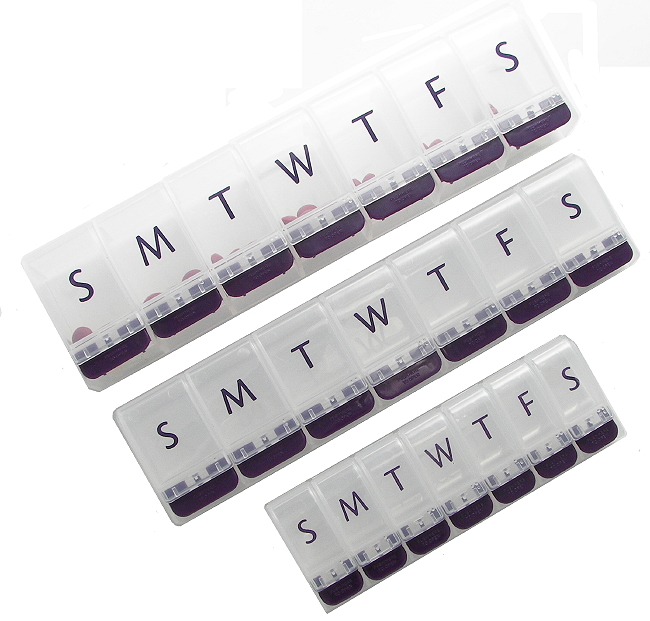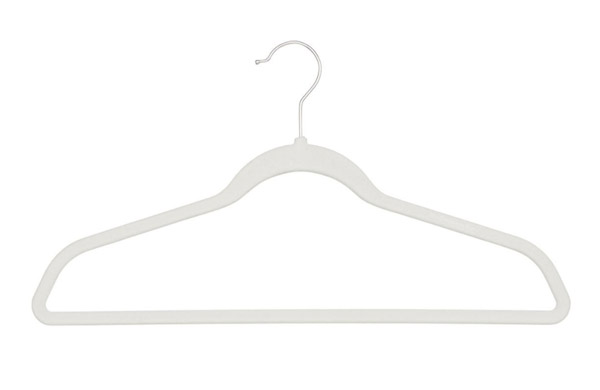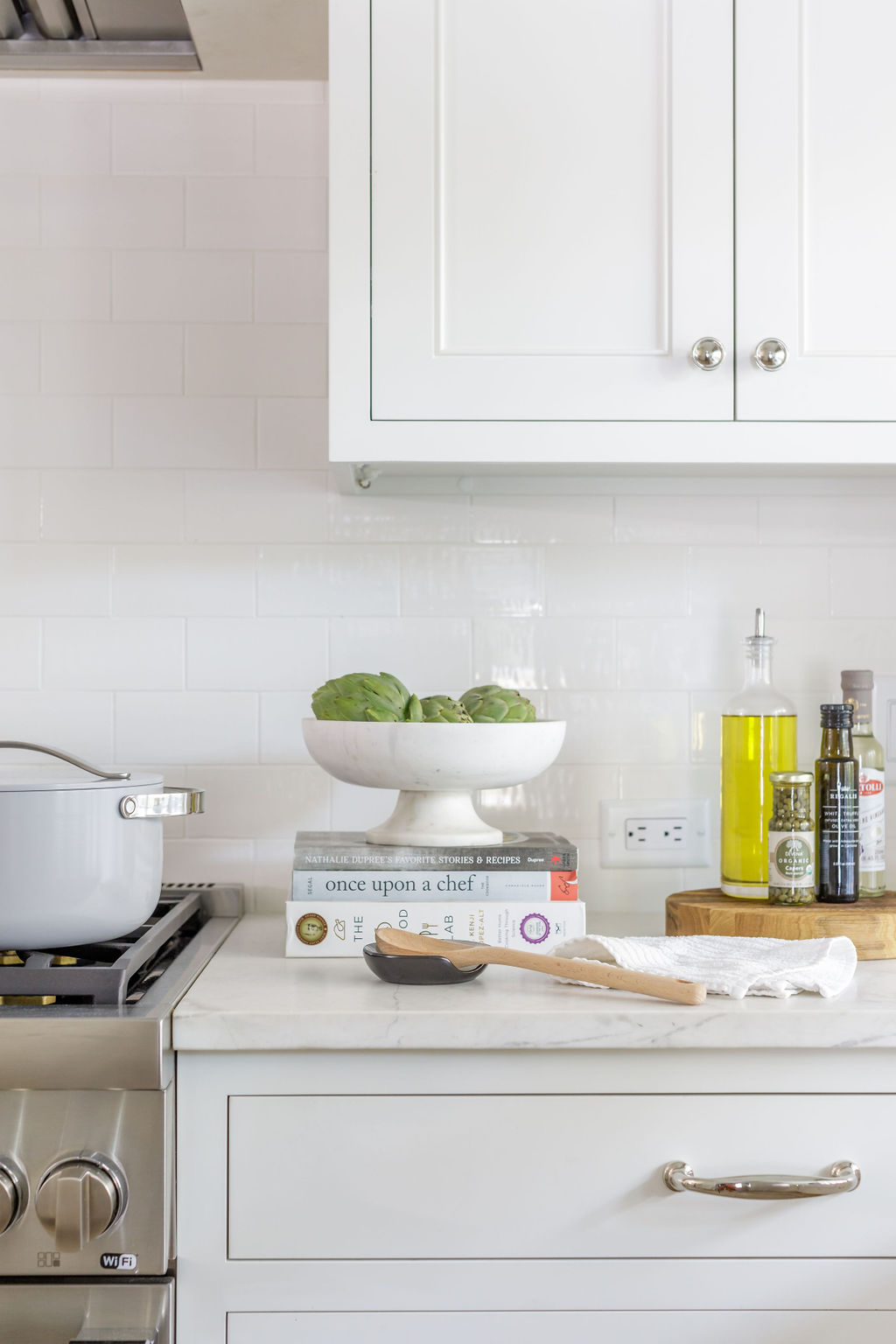Vitamin supplements have become a big part of people’s everyday routines. There are so many different views on what vitamins you should be taking to ward off all kinds of diseases and illnesses. As an organizer I see so many people overwhelmed by the amount of vitamins they purchase but never end up taking.
The two most popular questions people ask are “where should I keep them?” and “how do I organize them?.” There are different ways to organize them based on convenience, the amount you take and the space you have available.
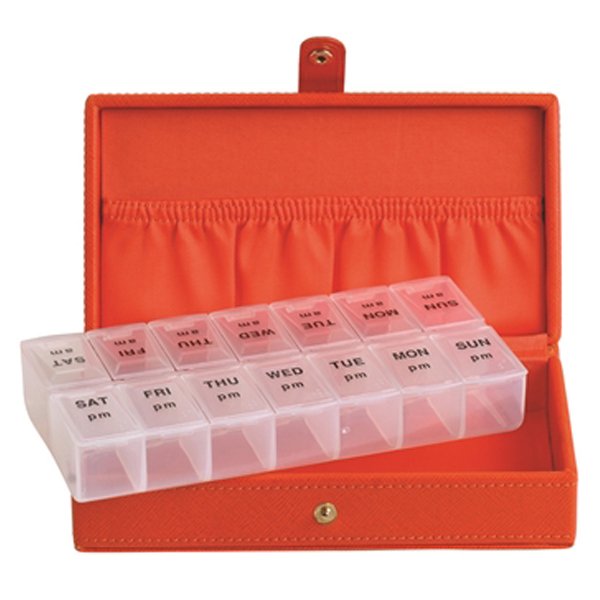 The Geneva Pill Box has 14 labeled slots for pills and is in a chic travel case.
The Geneva Pill Box has 14 labeled slots for pills and is in a chic travel case.
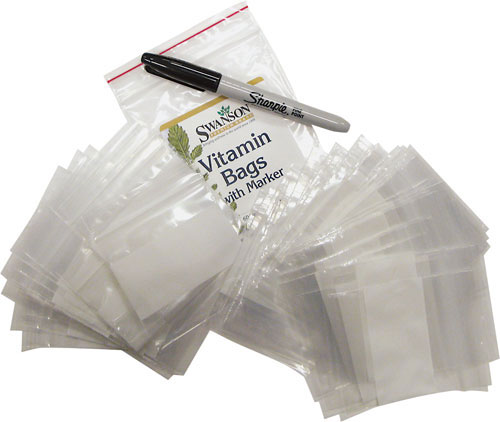 Vitamins bags are not just for easy travel but convenient to carry in your pocket or purse.
Vitamins bags are not just for easy travel but convenient to carry in your pocket or purse.
The Weekly Pill Organizer is perfect for daily at home use.
Tips for proper vitamin storage:
1. Forego the fridge. For optimal potency, vitamins and other dietary supplements should be stored in a cool and dry place. A refrigerator is certainly cool, but it’s also full of moisture, which can reduce vitamins’ shelf life and effectiveness. The exceptions to this rule are supplements whose packaging specifically recommends refrigeration.
2. Bypass the bathroom. Storing your vitamins in the same small room in which you shower means exposing them to heat and humidity on a daily (or at least frequent) basis, even if they’re stashed away in the medicine cabinet.
3. Reconsider the kitchen. Since vitamins are often taken with food, it seems only logical to keep them in the kitchen. The problem is that the temperature and humidity in your kitchen rises and falls as you use the oven and stovetop. If storing your vitamins in close proximity to your food is important, opt for the dining room or breakfast nook instead.
4. Think high and dry. Nutritional supplements may seem (or even be) “natural,” but they’re also potentially poisonous when taken in high doses. Store them as you would any medication, in their original containers and out of reach of children. Be sure to avoid any cabinets or shelves that are close to windows or heating pipes where temperature and humidity might fluctuate.
5. Don’t redistribute. Another reason to keep vitamins in their original containers is that they may require a specific type of packaging for optimal potency. Some supplements lose their effectiveness when exposed to light, for example, and must be stored in opaque or dark-colored containers. Avoid transferring your vitamins to larger or smaller bottles for convenience or combining them with other supplements in the same container.
6. Check the expiration date. Taking an expired supplement won’t kill you, but it probably won’t do anything positive for you either. Vitamins lose potency with age, so taking them after their expiration date may not produce the health benefits you’re hoping for.
Implement a system that will help you remember the amount and the times of day they are to be taken. When you run out of a vitamin make a list so you only purchase what is necessary.
Vitamin clutter is like any other clutter if it is something you buy and never use, it is taking up valuable space in your home.
tag www.rd.com
